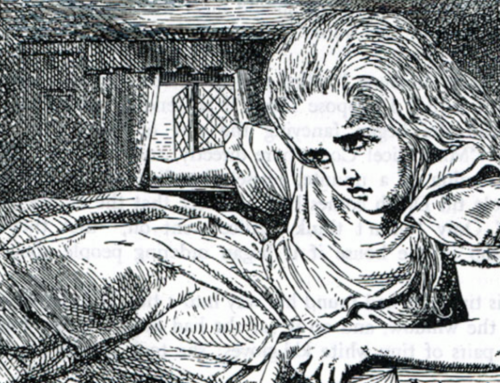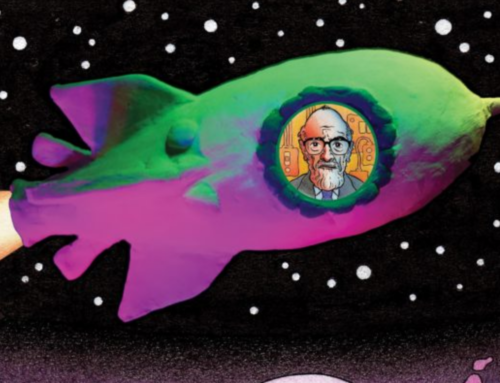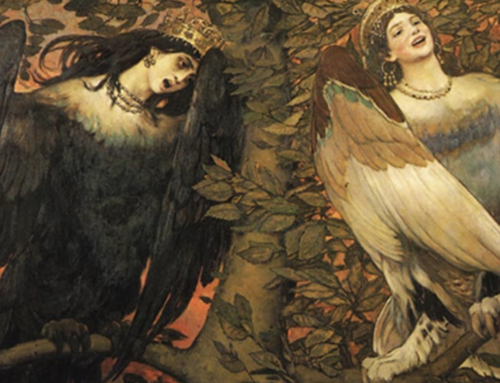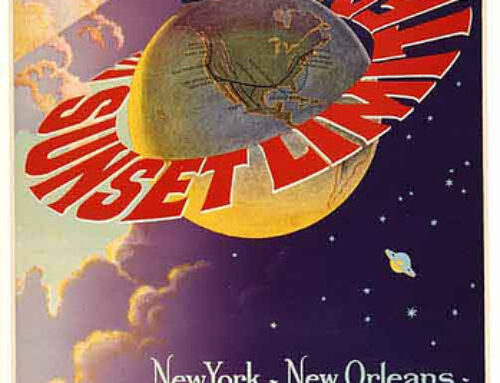In the eighties, a Manson murder obsessive by the name of Bill Nelson befriended Sharon Tate’s mother, Doris Tate, who then agreed to a taped interview. The interview, called “Doris Tate – In Her Own Words” is rarely seen and only available now on YouTube, is considered by many to be a disgusting act of exploitation.
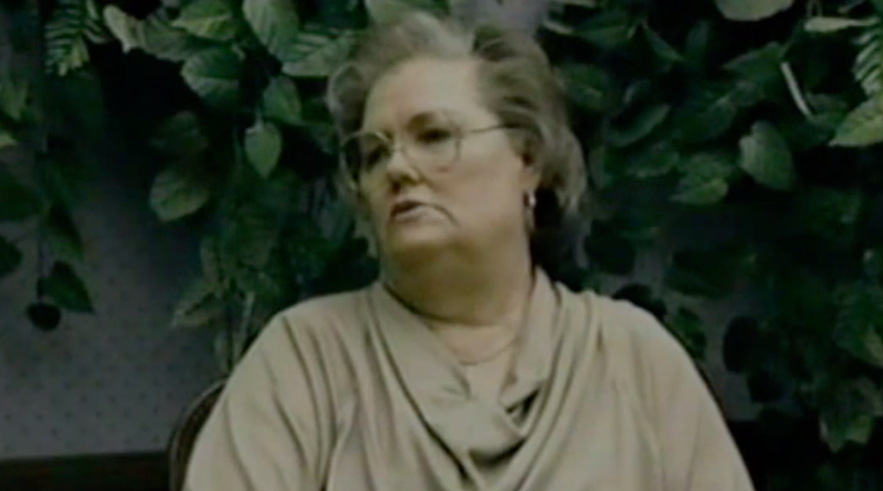
It’s not clear, looking at Doris, if she used to be a great beauty as you might expect her to be. Her chin now hangs from a round face, large earrings dancing. A pleasant face, with features now too small and delicate, but really nice skin. She dresses well, if a little conservative. She’s what other women might call handsome. She’s solid, polite. Doris likes to end her sentences with the word “OK.”
The interviewer, Bill, is a self-described murder researcher in his fifties, who has read more than twenty books about the events of August 1969. Doris speaks about the events of August 1969 as if she is discussing something else. Maybe she’s talking about a store shutting down, the inconvenience it caused to some people she knows. Maybe as if she’s talking about a family dinner that went awry, a falling out, a bad purchase from a catalogue. Doris equalizes these things because she cannot allow herself to let go and fall into the events of August 1969.
Bill can’t stop himself from smiling. He’s even got on his best tie for this taping. He wants to take her back to that fateful night, even though Doris had not been there herself. He guides her like a hypnotist might. “Up the incline,” Bill says.
“Yes,” sighs Doris. She is now imagining being in the shoes of the killers, walking up the path. Bill does not flinch. Instead, he tells her the details of the telephone pole, the hood of the car they stood on, a 1954, he tells her, like it matters what year the car was manufactured to Doris. He says all this in present tense, as if it’s happening now. The way the kids cut the four lines. All Doris can do is say yes to everything. He tells her loudly and slowly, as if she’s a child that does not understand, about the five fatal stab wounds.
Bill then adds with a grin, “It was brutal, and it was ritualistic.” The camera does not film Doris at this point.
The last time they were at the house, Doris says, they watched the moon landing on TV together, her and Sharon, and the other two daughters, only ten and sixteen. He keeps a smile wandering about his lips as he speaks to Doris, he drinks her in. Doris says she can’t read those books he’s read. The interviewer says that’s why he does it, for her, so she doesn’t have to. She repeats this, nodding.
When there are facts about her daughter that are not in the twenty plus books about the events of August 1969, the interviewer gets very testy with Doris. Still, Doris appreciates his time. This way, she gets to talk about it all again. Bill tells her the killers had intended to dismember her daughter, but they were short on time. Doris responds by saying she doesn’t know why they were short on time. Bill is snappy. He says it’s because word had got out. Doris looks doubtful.
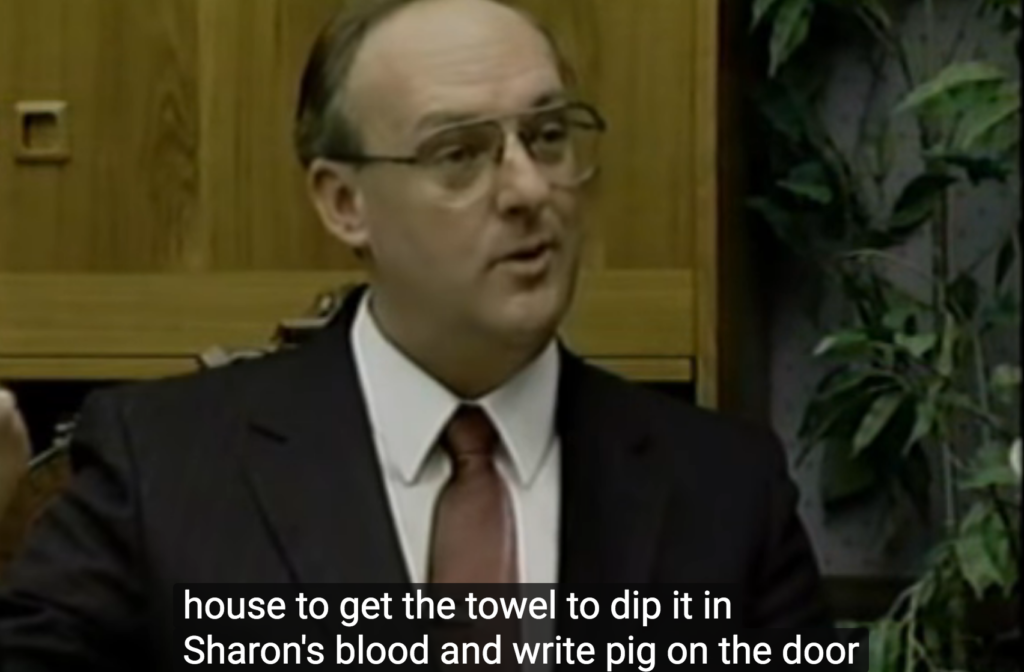
For Bill, Doris is a part of the hauntology he has been soaking in since it happened. She is more valuable than his measurements of the distance between the driveways and the hosepipes the kids used to wash the blood from their clothes. She’s more real than the waxy faces of the girls on the news that describe the way their bodies had no part in it. That lack of mercy, they claimed, came from the devil and the LSD. When Sharon begged for her baby to be saved, they say they were not really there. Doris was not the first person to be contacted when the police found the scene, she says. She says she is glad for this, or else she isn’t sure what she might have done. There’s a feeling that Doris would have done exactly the same as she did, because Doris seems to only have one level for something so big it seems impossible to grasp. She doesn’t seem to have the edges yet, but it’s been decades.
Doris says she had been preparing the baby’s room with her daughters in the days before. She can’t stop telling Bill that Sharon had only returned from Europe three weeks before. She can’t explain why they didn’t stay on Friday, like they always did. She can’t explain why she wouldn’t allow her sixteen-year-old to stay the night alone with her sister. But she didn’t. Doris is more concerned with the rumors. She wants to be clear that she isn’t divorced. Her husband is in the forces. They see each other all the time. Bill hums cynically. He asks her about the sex parties. That Roman had said Sharon was either stupid or naïve to not know. Doris says, naïve, she was naïve. As if it’s a question in a quiz show, she tries to pick the correct answer. But this was never meant to be a question.
Later, they are filmed, her and this Bill, visiting Sharon’s grave. Doris pushes pink roses straight into the earth as Bill watches on with burning eyes. She doesn’t seem to mind if they film her close up. Her face remains the same. Doris is a handsome woman. Solid, polite.
Eliot Bryter is a writer living in London, now finishing a first novel about a desert cult massacre.
www.eliotbryter.com
eliot@eliotbryter.com


